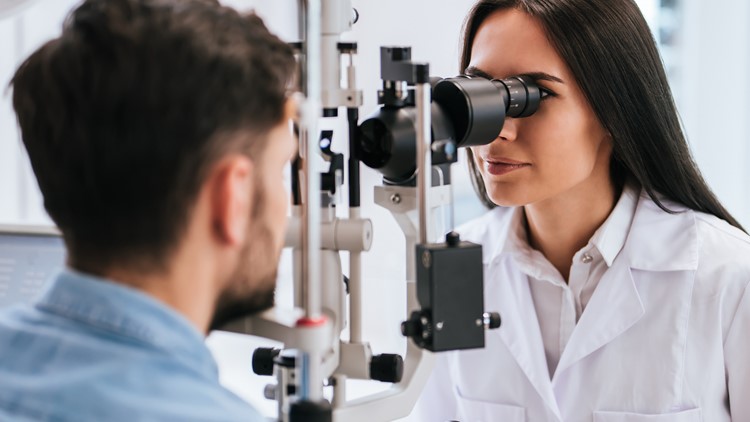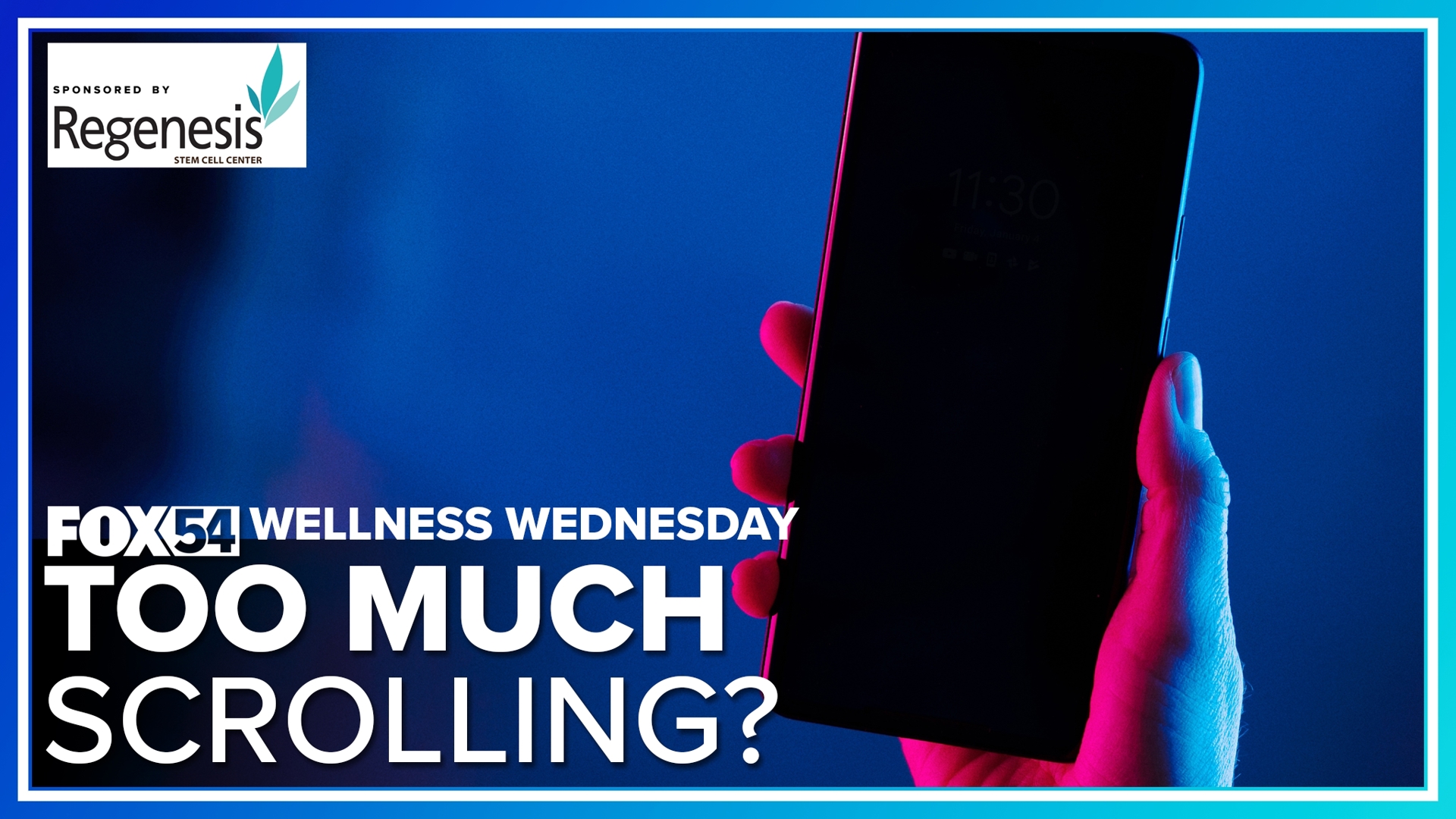HUNTSVILLE, Ala. — Eyesight worsens over time, but optometrist Dr. Shane Kannarr says some patients may be experiencing eye problems due to stress.
Vision blur or dry eye cases may be due to one's mental health struggles.
Dr. Kannarr says even medication like Xanax or antidepressants can worsen your sight by weakening the eye muscles.
"As the stressful situation resolves, so will the vision problems," Kannarr said.
These problems can be resolved with exercise. Kannarr suggests starting with 30 minutes of walking. If you have stronger eyesight problems, seek your doctor's advice.
Doctors may prescribe therapy and if meeting with a therapist does not sound fitting to you, utilize telehealth that may be provided by your health care provider.
From the CDC:
Did you know that vision loss can affect your mental health? Learn what you can do to keep your eyes and your mind healthy.
More than 7 million Americans have vision impairment, including 1 million who are blind. Another 93 million US adults are at risk for severe vision loss. These numbers are expected to increase because of the aging population and increase in chronic diseases.
What We Know About Vision Loss and Mental Health
Vision loss can affect your physical health by increasing your risk of falls and your quality of life, and it can also have a big impact on your mental health. Loss of vision has been linked to loneliness, social isolation, and feelings of worry, anxiety, and fear.
Depression is common in people with vision loss. In a recent CDC studyexternal icon, 1 in 4 adults with vision loss reported anxiety or depression. Younger adults with vision loss had almost 5 times the risk of serious anxiety or depression compared to adults 65 and older, possibly because they had not yet developed effective coping or self-management skills.
Untreated anxiety can increase the risk of developing depression. People who have vision loss should be screened for depression and anxiety. The sooner these problems are treated, the better their quality of life will be.
Symptoms of Anxiety and Depression
Talk with your doctor if you’re having symptoms of anxiety or depression, and ask for a referral to a mental health counselor.
Some common symptoms of anxietyexternal icon are:
- Trouble controlling feelings of worry
- Trouble focusing
- Trouble sleeping
- Feeling restless, wound up, or on edge
- Being irritable
Some common symptoms of depression are:
- Lack of interest in hobbies and activities
- Often feeling sad or anxious
- Feeling helpless or worthless
- Appetite and/or weight changes
- Fatigue or lack of energy, even after sleeping well
5 Tips for Healthy Eyes and a Healthy Mind
- Add more movement to your day. Physical activity not only lowers your risk of developing health problems that can affect your vision but can also boost your mood and reduce stress.
- Eat healthy. Nutritious food can improve your mood and help lower your risk of type 2 diabetes and diabetic retinopathy—one of the leading causes of vision loss.
- Share your family history with your doctor. Both mental health disorders and eye diseases can run in families.
- Don’t smoke. People with mental health problems die an average of 5 years earlier than those without, often from smoking-related illness. Smoking also increases your risk of developing an eye disease that can cause vision loss.
- Manage your chronic conditions. Long-term health conditions such as cancer, heart disease, and diabetes may increase your chance of developing a mental health problem. Make sure to take your medicines as prescribed and make recommended lifestyle changes to help manage your condition.
RELATED: Are you wearing the right sunscreen?
RELATED: Women's Health Education Week



